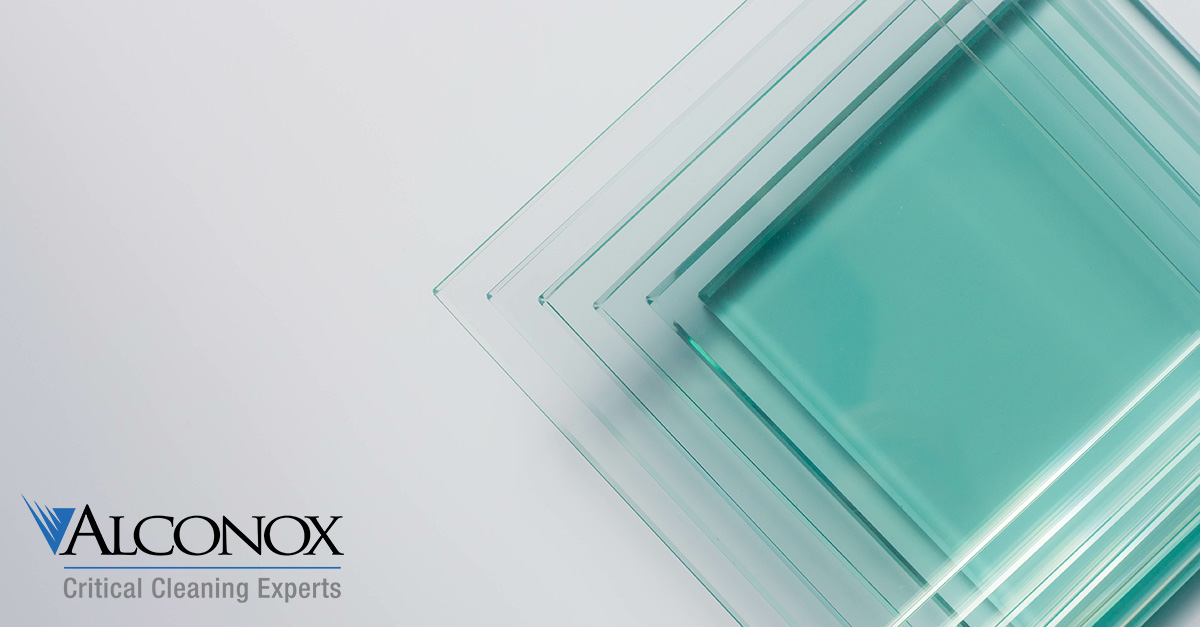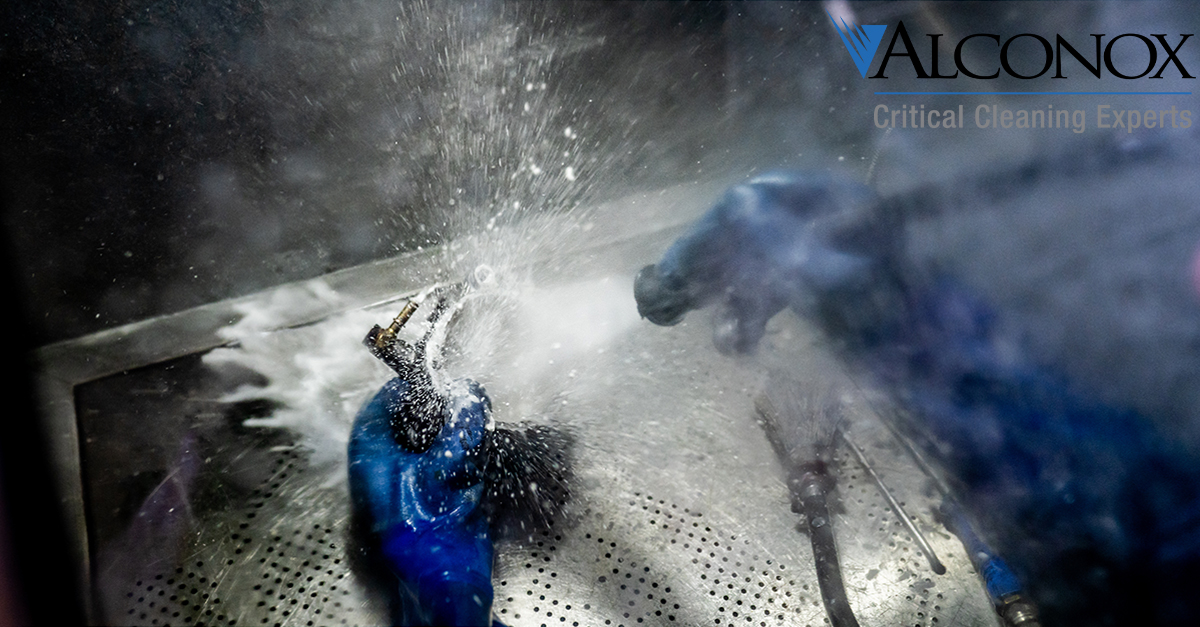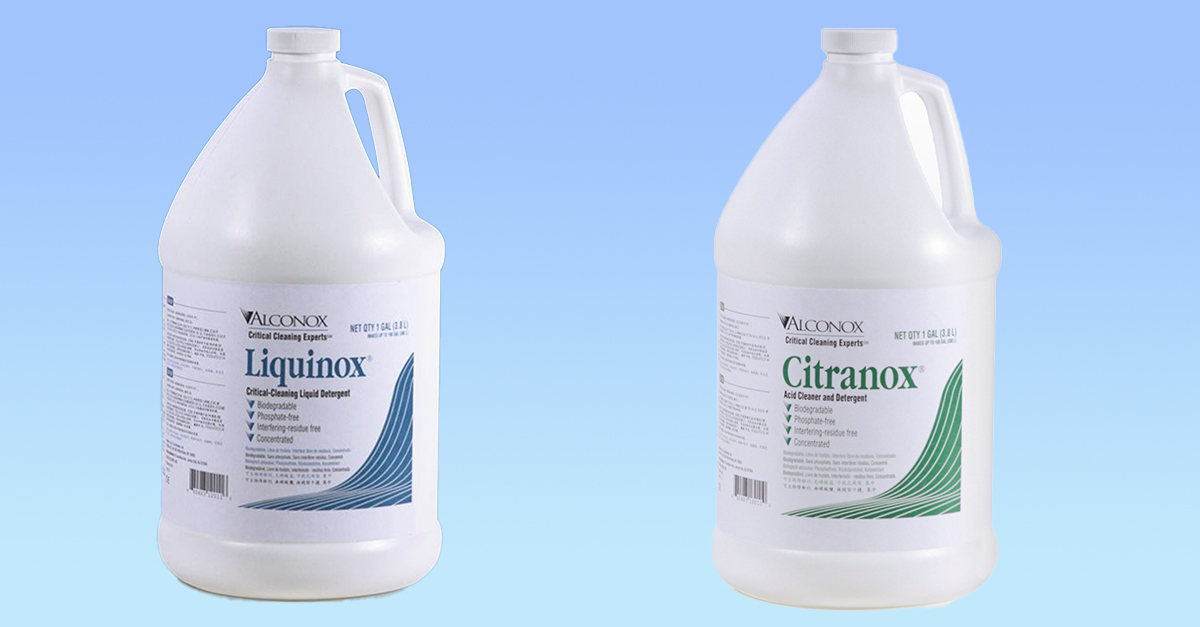A Solution For Using An Expired Detergent Solution
Q: Is there any damage that could be caused to our parts if they were washed in the Liquinox Solution after being expired for 5 days? Would reprocessing the products in Non Expired Solution be a safe resolution? A: As discussed here, Using Expired Detergent, the cleaning in expired Liquinox detergent….
Cleaning Soda Lime Glass
Q: Our substrate is coated soda-lime glass. It is coated in indium tin oxide, and/or fluorinated tin oxide. We are unable to remove salt/scale and would like to use detergent only and no volatile solvents. What does Alconox Inc. recommend?
A: For cleaning residues like indium tin oxide and fluorinated tin oxide from….
Specific Formulations for Cold Water Cleaning?
Q: I’m looking for detergents similar to Liquinox and Citranox, that are specially formulated for cold water cleaning conditions. Can you recommend analogs to the two?
A: For most residues, the detergency of an aqueous detergent is enhanced and hastened by heat.
Liquinox vs. Citranox
Q: What is the difference between Liquinox vs. Citranox? We are using Liquinox for many of our applications but are having trouble with stainless steel cleaning cannulas with a small ID. Is Citranox the answer if the residue is inorganic?
A: Although Liquinox detergent is excellent at cleaning a host of residues, Citranox cleaner is indeed the better choice if we are fairly certain this is a largely inorganic residue.
Polylysine From Microscope Slides
Q: Will Alconox remove the polylysine coating from microscope slides?
A: Polylysine is a commonly used preservative composed of the amino acid lysine in a long polymeric chain. It is removed with either basic hydrolysis, enzymatic processes, or a combination of both.




